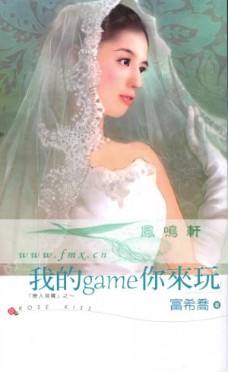my name is red-我的名字叫红-第63章
按键盘上方向键 ← 或 → 可快速上下翻页,按键盘上的 Enter 键可回到本书目录页,按键盘上方向键 ↑ 可回到本页顶部!
————未阅读完?加入书签已便下次继续阅读!
I sensed that some other power had placed these words into my mouth; yet
I couldn’t restrain myself。 There was no longer any way for me to be happy
and hopeful。 I could only be smart and sarcastic。 Behind these two always
entertaining jinns—intelligence and sarcasm—I sensed the presence of the
Devil; who controlled them; overing me。 At the same moment; the
accursed dogs beyond the gate began to howl madly as if they’d tracked the
scent of blood。
Had I lived this exact moment long ago? In a distant city; at a time which
now seemed far from me; as a snow that I couldn’t see fell; by the light of a
candle; I was attempting to explain through tears that I was entirely innocent
to a crotchety old dotard; who’d accused me of stealing paint。 Back then; just
as now; dogs began to howl as if they’d smelled blood。 And I understood from
Enishte Effendi’s great chin; befitting an evil old man; and from his eyes;
which he was finally able to fix mercilessly into mine; that he intended to
crush me。 I recalled this tattered memory from when I was a ten…year…old
miniaturist’s apprentice like a picture whose outlines are clear but whose
colors have faded。 Thus was I living the present as though it were a distinct but
faded memory。
So; as I arose and circled behind Enishte Effendi; lifting that new; huge and
heavy bronze inkpot from among the familiar glass; porcelain and crystal ones
that rested on his worktable; the hardworking miniaturist within me—that
Master Osman had instilled in us all—was illustrating what I did and what I
saw in distinct yet faded colors; not as something I was experiencing now but
as if it were a memory from long ago。 You know how in dreams we shudder to
see ourselves as if from the outside; with the same sensation; holding the large
yet small…mouthed bronze inkpot; I said:
“When I was a ten…year…old apprentice; I saw just such an inkpot。”
“It’s a three…hundred…year…old Mongol inkpot;” said Enishte Effendi。 “Black
brought it all the way from Tabriz。 It’s for red。”
At that very moment; it was of course the Devil prodding me to drive that
inkpot down with all my might onto this conceited old man’s faulty brain。 But
I didn’t give in to the Devil; and with false hope; I said; “It is I; I’m the one
who murdered Elegant Effendi。”
You understand why I said this hopefully; don’t you? I trusted that Enishte
would understand; and in turn; forgive me—that he would fear and help me。
181
I AM YOUR BELOVED UNCLE
A silence filled the room when he confessed he’d murdered Elegant Effendi。 I
assumed he’d kill me as e here to end
my life or to confess and terrify me? Did he himself know what he wanted? I
was afraid; realizing how absolutely unacquainted I was with the inner world
of this magnificent artist whose splendid lines and magical use of color had
been familiar to me for years。 I could sense him standing stiffly behind me;
there at the nape of my neck; holding that large inkpot reserved for red; but I
didn’t turn to face him。 I knew my silence would make him uneasy。 “The dogs
haven’t yet quieted down;” I said。
We fell silent again。 This time; I knew that my death; or my somehow
avoiding this misfortune; would depend on what I told him。 All I knew aside
from his work was that he was quite intelligent; and if you grant that an
illustrator must never reveal his soul in his work; intelligence is; of course; an
asset。 How had he cornered me at home when no one else was here? My aged
mind was furiously preoccupied with this question; but I was too confused to
see myself out of this game。 Where was Shekure?
“You knew it was me; didn’t you?” he asked。
I hadn’t known at all; not until he told me。 In the back of my mind; I was
even wondering whether he hadn’t done well by killing Elegant Effendi; and
that the late miniaturist might’ve actually succumbed to his anxieties and
made trouble for the rest of us。
I was ever so slightly grateful to this murderer; with whom I was alone in
the empty house。
“I’m not surprised you killed him;” I said。 Men like us who live with books
and dream eternally of their pages fear only one thing in this world。 What’s
more; we’re struggling with something more forbidden and dangerous; that is;
we’re struggling to make pictures in a Muslim city。 As with Sheikh
Muhammad of Isfahan; we miniaturists are inclined to feel guilty and
regretful; we’re the first to blame ourselves before others do; to be ashamed
and beg pardon of God and the munity。 We make our books in secret like
shameful sinners。 I know too well how submission to the endless attacks of
hojas; preachers; judges and mystics who accuse us of blasphemy; how the
endless guilt both deadens and nourishes the artist’s imagination。“
“You don’t fault me for murdering that idiotic miniaturist; do you then?”
182
“What attracts us to writing; illustrating and painting is bound up in this
fear of retribution。 It’s not only for money and favor that we kneel before our
work from morning to evening; continuing by candlelight through the night to
the point of blindness and sacrifice ourselves for pictures and books; it’s to
escape the prattle of others; to escape the munity; but in contrast to this
passion to create; we also want those we’ve forsaken to see and appreciate the
inspired pictures we’ve made—and if they should call us sinners? Oh; the
suffering this brings upon the illustrator of genuine talent! Yet; genuine
painting is hidden in the agony no one sees and no one creates。 It’s contained
in the picture; which on first sight; they’ll say is bad; inplete; blasphemous
or heretical。 A genuine miniaturist knows he must reach that point; yet at the
same time; he fears the loneliness that awaits him there。 Who would accede to
such a frightful; nerve…wracking existence? By blaming himself before anyone
else does; the artist believes he’ll be spared what he’s feared for years。 Others
listen to him and believe him only when he admits his guilt; for which he is
then condemned to burn in Hell—the illustrator of Isfahan lit these hellfires
himself。”
“But you’re not a miniaturist;” he said。 “I didn’t kill him out of fear。”
“You murdered him because you wanted to paint as you wished; without
fear。”
For the first time in a long while; the miniaturist who aspired to be my
murderer said something quite intelligent: “I know you’re explaining all this
to distract me; to dupe me; to get yourself out of this situation;” and he
added; “but what you’ve just said is the truth。 I want you to understand;
listen to me。”
I looked into his eyes。 He’d pletely forgotten the formality customary
between us as he spoke: He’d been carried away by his own thoughts。 But to
where?
“Never fear; I won’t offend your honor;” he said




